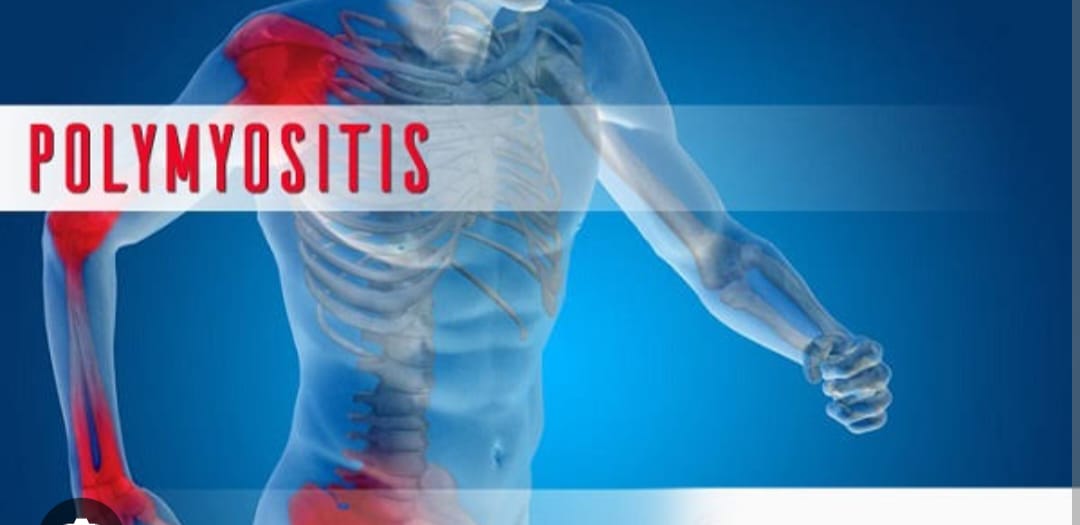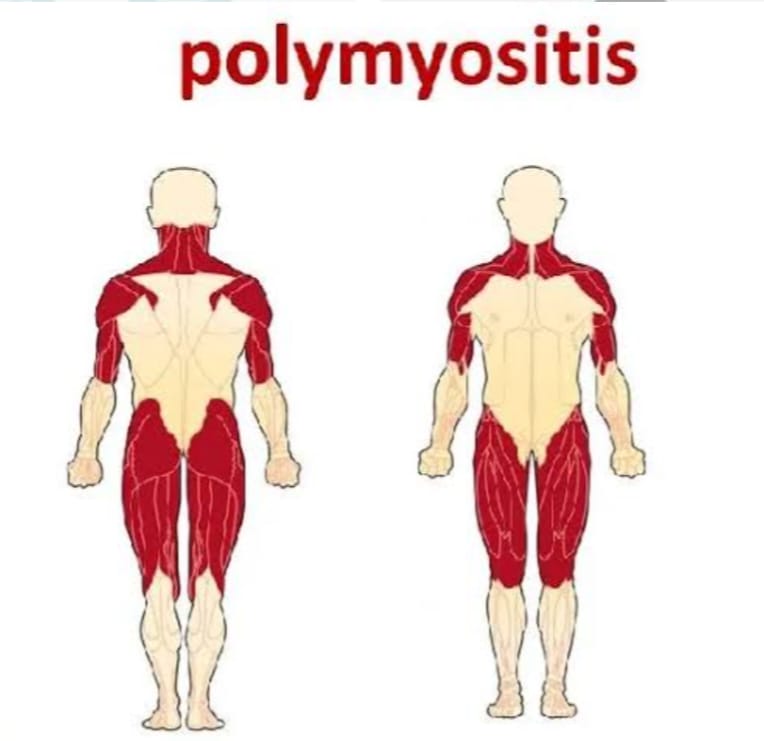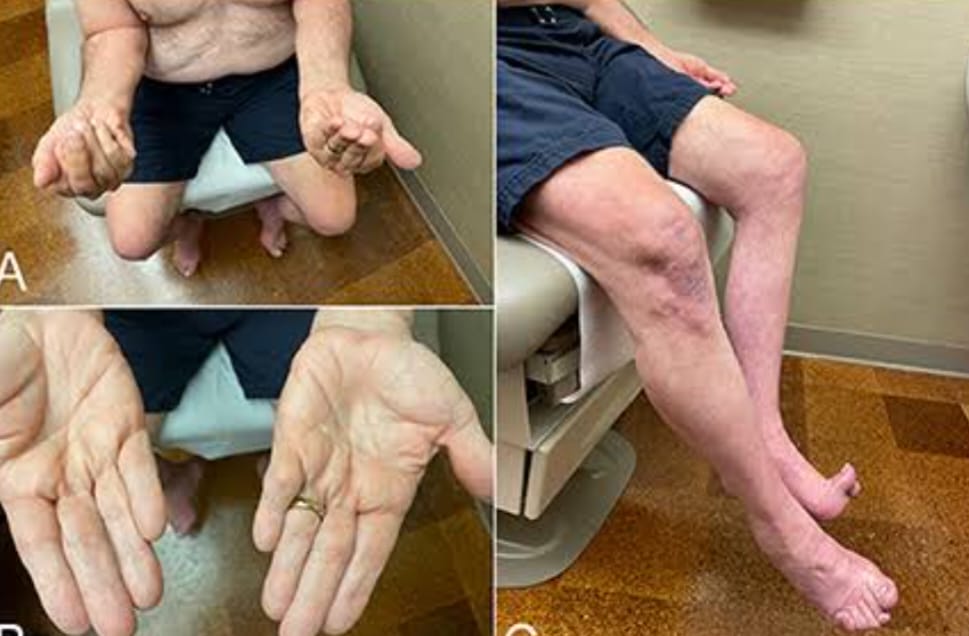Polymyositis
Polymyositis is an uncommon connective tissue disease. It`s a type of inflammatory myopathy, which is characterized by muscle inflammation and weakness. The most noticeable characteristic of polymyositis is weakness of the skeletal muscles, which control movement.
Polymyositis can occur at any age, but it mostly affects adults sometime between their 30s and 50s. It`s more common in women are affected more often than men are. Polymyositis signs and symptoms usually develop gradually, over weeks or months.
Causes of Polymyositis:
The exact cause behind Polymyositis is not yet known. However, it falls in the category of auto-immune disease. It is also suspected to have some genetic links. Certain infections such as virus, parasites (protozoa), Lyme disease, etc. might trigger Polymyositis.
Recent studies indicated involvement of certain immunological parameter such as some cytokines (IFN-gamma) and IL 2, etc. which are released after microvascular muscle injury. That, in turn, lead to activation of some other cytokines such as TNF-alpha, which is also responsible for continued and recurring inflammation of the muscles. All in all, polymyositis is a multifactorial disorder, where genetic, immunological and other factors are involved. Homeopathic treatment tries to address multiple factors and bring about control of the disease processes as well relief in the symptoms.
Symptoms:-
Progressive muscle weakness is the most common polymyositis symptom. It typically affects the muscles closest to the trunk, such as those in your hips, thighs, shoulders, upper arms and neck. The weakness is symmetrical, affecting both the left and right sides of your body, and tends to gradually worsen.
Although the muscle weakness starts subtly, after it progresses over the course of the disease it can make it difficult for you to climb stairs, rise from a seated position, lift objects or reach overhead.
Other polymyositis signs and symptoms include: -
Difficulty swallowing (dysphagia) -
Difficulty speaking -
Mild joint or muscle tenderness -Fatigue
-Shortness of breath
Tests and diagnosis:-
-Magnetic resonance imaging (MRI).
-Electromyography.
-Muscle biopsy.
-Creatine kinase (CK)
Complications:-
-Difficulty swallowing
-Aspiration and pneumonia
-Breathing problems
-Calcium deposits
-Raynaud`s phenomenon
-Cardiovascular disease.
-Lung disease
-Concerns during pregnancy
Treatments and drugs:-
Although there`s no cure for polymyositis, treatment can improve your muscle strength and function. The earlier treatment is started in the course of polymyositis, the more effective it is, leading to fewer complications.
Corticosteroids are widely prescribed, but it has many adverse effects.
Homoeopathic medicine:-
These medications suppress your immune system, limiting the production of antibodies and reducing muscle inflammation, as well as improving muscle strength and function.
Homeopathy has reasonably good treatment to offer for Polymyositis, which works at two levels:
1. Controls further progress of disease
2. Improves the symptoms of pain, fatigue and mobility



